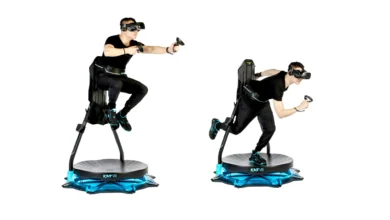
Marine biology is a fascinating field that explores the wonders of marine life and the intricate ecosystems that exist beneath the surface of our oceans. In this comprehensive guide, we will delve into the captivating world of marine biology, covering various aspects from the diversity of marine organisms to the importance of conservation efforts. So grab your diving gear and get ready for an exciting journey into the depths of marine biology!
Introduction to Marine Biology
Marine biology is the scientific study of marine organisms and their habitats. It encompasses a wide range of disciplines, including biology, ecology, zoology, and oceanography. Marine biologists are dedicated to understanding the diverse life forms that inhabit our oceans and how they interact with their environment.
Exploring the Marine Ecosystems
Marine ecosystems are incredibly diverse, ranging from coral reefs to deep-sea trenches. Each ecosystem has its unique set of environmental conditions and supports a variety of marine species. Some of the most remarkable marine ecosystems include coral reefs, kelp forests, mangrove forests, and hydrothermal vents.
The Diversity of Marine Organisms
The oceans are teeming with a staggering array of organisms, from microscopic plankton to massive whales. Marine organisms have evolved fascinating adaptations to survive in different marine environments. These include camouflage, bioluminescence, and the ability to withstand extreme pressures and temperatures.
Adaptations and Survival Strategies
Marine organisms have developed remarkable adaptations to thrive in their specific habitats. For example, some species have evolved streamlined bodies for efficient swimming, while others possess sharp teeth and powerful jaws to catch prey. These adaptations have enabled marine life to occupy a wide range of ecological niches.
Read More: How to Analyze Fluid Dynamics In 2023
Oceanic Food Chains and Trophic Levels
The marine food web is a complex system of interactions between different organisms. It consists of producers (such as phytoplankton), primary consumers (herbivores), secondary consumers (carnivores), and tertiary consumers (top predators). Understanding these trophic relationships is crucial for comprehending the balance of marine ecosystems.
Human Impact on Marine Life
Human activities have significantly affected marine ecosystems. Pollution, overfishing, climate change, and habitat destruction pose significant threats to marine life. Understanding the impact of these factors is vital for developing strategies to mitigate their effects and protect our oceans for future generations.
Conservation and Sustainability
Conservation efforts play a crucial role in preserving marine biodiversity. Marine protected areas, sustainable fishing practices, and reducing plastic pollution are some of the initiatives aimed at safeguarding our oceans. It is essential for individuals, governments, and organizations to work together to ensure the sustainable use and protection of marine resources.
The Role of Marine Biologists
Marine biologists are at the forefront of studying and conserving marine life. They conduct research, monitor marine ecosystems, and contribute to conservation initiatives. Their work involves fieldwork, laboratory experiments, data analysis, and collaboration with other scientists and organizations.
Cutting-Edge Technologies in Marine Biology
Advancements in technology have revolutionized the field of marine biology. Remote-operated vehicles (ROVs), autonomous underwater vehicles (AUVs), and DNA sequencing techniques have opened up new avenues for exploration and research. These tools allow scientists to study previously inaccessible marine environments and uncover new insights about marine organisms.
Career Opportunities in Marine Biology
Marine biology offers a wide range of career opportunities for those passionate about the oceans. Some potential career paths include marine researcher, conservation scientist, marine educator, aquaculturist, and marine park manager. These roles provide the opportunity to make a meaningful contribution to marine conservation and understanding.
Exciting Discoveries in 2023
The year 2023 has brought about numerous exciting discoveries in marine biology. Scientists have identified new marine species, uncovered hidden ecological relationships, and made advancements in understanding the impacts of climate change on marine ecosystems. These discoveries highlight the ongoing progress in our knowledge of marine life.
The Future of Marine Biology
As we move forward, marine biology will continue to play a vital role in understanding and conserving our oceans. The integration of advanced technologies, interdisciplinary research, and increased conservation efforts will shape the future of marine biology. It is essential for society to recognize the significance of our oceans and work towards their protection and sustainable use.
Conclusion
Marine biology is a captivating field that allows us to explore the mysteries of the underwater world. By studying marine organisms and their ecosystems, we gain a deeper understanding of the complexity and beauty of our oceans. Through conservation efforts and scientific advancements, we can ensure the preservation of marine biodiversity for generations to come.
FAQs
Q1: How long does it take to become a marine biologist?
A1: The time it takes to become a marine biologist varies depending on the level of education pursued. A bachelor’s degree typically takes four years, while a master’s or doctoral degree can take an additional two to six years.
Q2: Are there job opportunities in marine biology?
A2: Yes, there are various job opportunities in marine biology. These include research positions in academic institutions, government agencies, conservation organizations, and private industry.
Q3: Can you specialize in a specific area of marine biology?
A3: Absolutely! Marine biology encompasses many sub-disciplines, such as marine ecology, marine microbiology, marine conservation, and marine genetics. You can specialize in a particular area based on your interests and career goals.
Q4: Is scuba diving a requirement for marine biologists?
A4: While scuba diving can be an asset for marine biologists, it is not always a requirement. Many research projects can be conducted using other techniques and equipment, such as remote sensing or sampling devices.
Q5: How can I contribute to marine conservation?
A5: There are several ways to contribute to marine conservation. You can reduce your plastic consumption, support organizations working towards ocean protection, participate in beach cleanups, and spread awareness about the importance of marine ecosystems.











